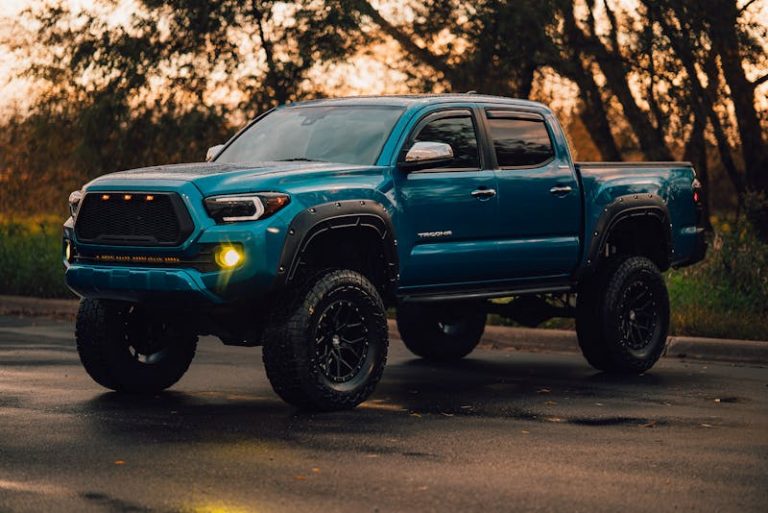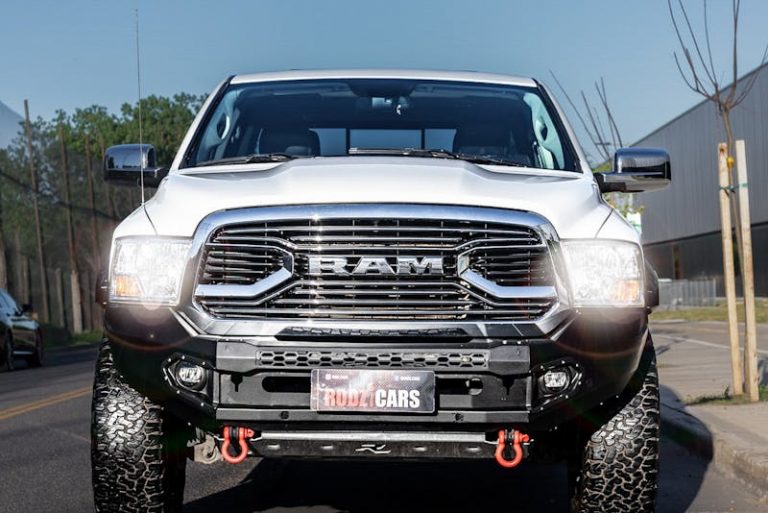

There is quite a variety of oils available used for a number of mechanical engines or what kind of differential oil do I need, it is imperative to understand each motor vehicle. This makes it difficult to know and choose what kind of differential oil do I need. Before delving into choosing what kind of differential oil do I need, we need to understand why we need oil.
Cars, trailers, and other engines typically use a precise kind, viscosity, and quantity of oil. The oil you use will counter an engine’s near tolerances. It changes over the galleries in the precise means, this excludes heating at a restrained stride. It also counters the type of driving the car or Trailer is intended to do. For example, a day-to-day motorist requires dissimilar oil contrary to a muscle car. If you alter the lubricant from the manufacturer’s recommendations, you’re altering how the lubricant interchanges and functions. Those variations could cause poor presentation, engine harm, or even damage the engine. Therefore, ask yourself what kind of differential oil do I need for this vehicle.
Engines that are more refined require the same type of lubricant that goes in them. Some engines require synthetic oil, others need oils with different mass or thickness. Additional engine systems can screen what sort of lubricant is in it. Additionally, the check engine light may turn on if the oil is an incorrect consistency.
There are a confusing amount of lubricants available in the marketplace. Each one includes numerous additives and behavioral standards. Determining the correct lubricant for your vehicle is comparatively simple. Nonetheless, deciding which is the best oil in the selection is slightly tougher. Yet, sorting through each to find the best lubricant has its advantages. An engine lubricant is what retains the engine from continued wear, over-heating, and other life-shortening issues. Choosing the right oil is how you may retain the longer life of your vehicles.
Understanding Oil
Oil the lifeblood of an engine. It is the core substance that is both reliable and wonderful. You can compare the engine of a motor vehicle to the human body in short. Think of the motor as you imaging the human heart. It pumps oil throughout the engine by way of tiny vessels called galleries. As the oil pumps through the motor, it is cleansed. The oil lubricates engine parts by moderating and cushioning the running engine components. It does all this while keeping dirt, coarse bits, and rusty chemical fouls at a halt. Worn-out oil must be renewed regularly to maintain its forklift repair and maintenance.
What happens if a vehicle runs out of oil?

If your engine finishes with lubricant, fragments will twitch to drudge together as they do not have fluency. The engine will eventually stiffen and seize. This result is tremendously challenging, if not a dreadful outcome. This is why it is significant to check your lubricant levels regularly. In order to accomplish this, you need to know what kind of differential oil do I need.
If you need your engine to run effortlessly and have a longer life, ensure it is taken care of properly. In addition, you must know what kind of differential oil do I need. This implies that an oil change should occur timely. Also, you use the type of lubricant that is advisable for your car or trailer. Garages can frequently articulate which lubricant is the correct one for your vehicle’s consumption. Lack of taking this seriously might threaten to cause harm to your automobile if oil checks are not recurrently.
Besides the check engine light on the control panel, there are a number of other clues to watch for. There are many hints signaling it is time for a lubricant change.
Engine clatter:
When electrically powered oil is doing its work, it loosens the amount that’s in your engine. As a result, the engine operates more efficiently and noiselessly. Nonetheless, if your lubricant level is low or completely run out, you might hear noises similar to bashing or echoing resonances. If this happens, take your vehicle in for a lubricant change immediately.
Smelling Oil Inside Your Car
If you smell the scent of oil inside your vehicle is a sign you possibly have an oil leak. If you somehow smell fumes or gas, your automobile may be overheating. In any of these instances, you may need to take the vehicle in for service as soon as possible.
Exhaust smoke:
It is ordinary for your car or trailer’s tailpipe to release transparent vapor. Yet, if you notice that it turns to smoke this might indicate an oil leakage or defective engine fragments.
High mileage:
As specified previously, vehicles need an oil change every 3-5,000 miles, or approximately every 3-6 months. If you put extra miles on your vehicle in thirty days, you may need to take your vehicle in for an oil change or check-up. This will prevent any further issues. Some older automobiles can get this issue far more easily.
Dark-colored oil:
Fresh oil is transparent with a yellowish-brown shade. Over time, it will become a duskier color due to exposure to pollutants and other deposits. Therefore, if you’re scrutinizing why the lubricant is getting darker, it might be time for an oil change.
The Viscosity of Oil

Viscosity is a resistance to the flow of fluid. In engine oil terms, viscosity is jotted with ‘XW-XX.’ The digit forgoing the ‘W’ tolls the lubricant’s flow at 0°F (-17.8). The ‘W’ denotes winter. The lesser the figure here, the lower it coagulates during the winter. For example, 5W-30 thickness means the oil coagulates less in cold temperatures as compared to a 10W-30. However, it coagulates much greater than a 0W-30 viscosity of the oil. Therefore, cold weather might make your engine oil thicker. This is due to lower temperatures which can benefit from 0W or 5W viscosity. The same is true with vehicles or other mechanical engines in the scorching heat. The viscosity number should be higher to abstain the oil from thinning. This will indicate the tolerance of the oil at the highest temperatures. The other number after W indicates the viscosity that is at 100.
Sometimes the manufacturers recommend using oil with 5W-20 or 5W-30. This viscosity will ensure the engine lasts through different aspects such as temperatures or types of vehicles. For example, dirt bikes, trailers, or cars, etc.
Conventional Oil
This oil type is formed by the conventional process of extraction and drilling. It is used primarily at wholesale authorized locations. Therefore, it is less expensive than synthetic brands. Many oil manufacturers follow the standards of S and API. Yet, propose a slight difference in the approach of stabilizer bundles. Conventional oil is good for those people who change their oil often and for engines that are already broken in.
Premium Conventional Oil
Premium Conventional Oil is a general oil used for new cars. The maximum foremost trademarks have one for standard or top-level facilities. The greater is accessible in standard viscosities. 2020 Indian motorcycles and car industrialists typically stipulate 5W-20 or 5W-30 oil, nevertheless some need 10W-30. The three rankings ensure to regard each light-duty automobile on the road. Although this frequently changes as engines develop. Requiring more detailed and delicate types of oil.
Full-synthetic Oil
Full synthetic oil is made for more advanced engines. If these lubricants pass severe special checks (designated by the category), it means they have higher, longer-lasting performance in each precarious area, from thickness index to fortification in contradiction of engine sums. They flow well at little temperatures and uphold peak lubrication at great temperatures. Whereas first-rate oil, synthetics are referred to as thrice as exclusive as predictable oil and not at all times essential for all engines.
Synthetic-blend Oil:
It is fundamentally superior to conventional oil sensation with a dosage of synthetic. It is articulated to propose improved guard during heftier engine loads like trailers and trucks, as well as the supplementary higher engine temperatures. These lubricants are prevalent with spontaneous and Sports Utility Vehicles drivers since they do propose better defense, but typically charge merely a fraction beyond finest conservative oils.
High-mileage Oil:

Over 60 percent of automobiles on the thoroughfare exceed seventy-five thousand miles (120,701 km) as per the odometer. Referring to its mounting marketplace, lubricant cleansers and laboratories advanced the finest lubricants. Hallmark conditioners are inculcated to the lubricant (lubricant may be artificial or else conservative) to enlarge plus upsurge the suppleness of interior engine covers. The conditioners become quite precise and may help some engines however not disturbing others.
A few corporations also add thickness modernizers to coagulate the oil, along with anti-wear condiments. After getting familiar with the basic kinds of oil, now comes the question about what kind of differential oil do I need. For this, it all depends on the type of vehicle or automobile and the engine that vehicle contains. Heavy-duty engines like trailers will go for the synthetic type of oils. Some industrial air compressors may have an electric or diesel or petrol engine. It also needs lubricants for functioning.
It is often said to buy a fuel-efficient and lasting shutter engine because it gives ultimate glory to the mechanism and functioning of an engine. This will refer to high-quality oil as well. Referring to this, let’s get into the difference between synthetic and conventional oil and which should be preferred over the other.
Synthetic Vs, Conventional Oil:
Every oil is formed differently, thus to keep your vehicle functioning it is mandatory to know what you need and what you are getting. With time the new automobiles like 2020 Indian motorcycles or cars do need synthetic oils. For this, the user manual that came from the manufacturer should be checked.
Synthetic oils are so bearable and can be upheld at higher as well as lower temperatures. As for conventional oils, if short trips are taken, it can prevent oil from becoming warm enough to properly function. In an area with extreme cold weather conditions of both cold and hot, conventional oil can get broken down faster. Dealing with such conditions, many drivers find synthetic oils much more feasible than conventional oils.
On an important note, if you think about what kind of differential oil do I need when your vehicle utilizes synthetic oil, then never go for the conventional oil, as it will damage the longevity and performance of the vehicles’ engine Nevertheless, it is acceptable to utilize synthetic oils in aged care, which has formerly merely used conservative oil. The important thing is to go through the manual that comes with the vehicle about the engine, from the manufacturers.
Why does synthetic oil stand out?

On a molecular level, synthetic oil is made differently, as compared to conventional oil. Nonetheless, it is an oil, but the way it is made by consulting engineer for high-quality performance. Molecule magnitude in a synthetic oil is measured with systematic accuracy. The unvarying particles cause less friction, an imperative aspect of oil. Synthetic oil is also a cleanser and runs cleaner, because of improvement procedures that eliminate credits, and the occurrence of additives that can aid in cleaning the engine.
Amongst engine performance, ecological influence, toughness, hygiene, and the likeliness for improved gasoline economy. There is very much to adore about artificial oil and a good approach towards what kind of differential oil do I need for building cleaning. Nevertheless, whereas synthetic oil is usually measured the finest for your car, the approach on which it is mass-produced does create it additionally exclusive.
When learning about what kind of differential oil I need it depends on the type of vehicle or the engine my car has. Also, considering the silicone and spf roof systems and building cleaning being used in my oil-proof systems. This can aid in resolving plumbing solutions.
Buying the right oil online can be difficult. Ask yourself what kind of differential oil do I need? The research to find the best oil for your project. You can get some comparable and compatible prices to get the oil of your kind or the one that is best suited for your vehicle. Yet the best way is to buy from a seller who offers some free shipping as well. Subsequently, motor lubricant is a hefty fluid, you might find the delivery price counterbalances any probable investments.






